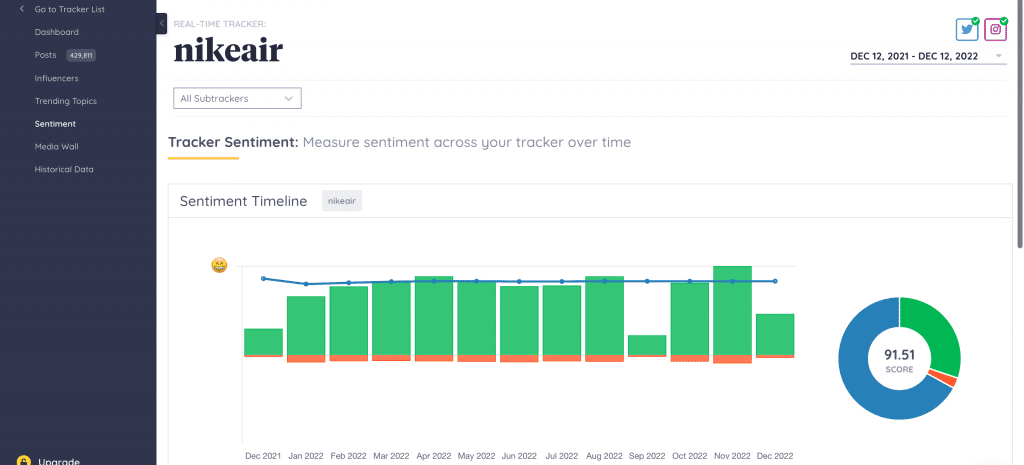In today’s digital age, social media has become an integral part of every business’s marketing strategy. With millions of users engaging on various platforms daily, businesses need to tap into the potential of social media to enhance their online presence and customer engagement. Social media monitoring plays a crucial role in achieving these goals. In this article, we will explore the significance of social media monitoring for business and how it can be a game-changer in the competitive market.
Understanding Social Media Monitoring for Business

1. What is Social Media Monitoring?
Social media monitoring, also known as social listening, involves tracking online conversations, mentions, and brand sentiments across social media platforms. It helps businesses gain valuable insights into their online reputation and customer perceptions.
2. Importance of Social Media Monitoring for Business
- Brand Reputation Management: Social media monitoring allows businesses to address negative feedback promptly, protecting their brand reputation.
- Customer Feedback Analysis: By analyzing customer feedback, businesses can make data-driven decisions to enhance their products or services.
- Competitor Analysis: Monitoring competitors’ social media activities provides valuable insights into market trends and customer preferences.
Benefits of Social Monitoring
1. Real-time Insights:
Social media monitoring provides real-time insights into customer opinions and market trends, enabling businesses to respond promptly to changing consumer preferences.
2. Enhanced Customer Engagement:
By actively participating in online conversations and addressing customer concerns, businesses can build meaningful relationships with their audience, leading to enhanced customer engagement and loyalty.
3. Data-Driven Decision Making:
Analyzing social media data helps businesses make informed decisions, optimizing their marketing strategies for better results and return on investment.
How Social Media Listening Tools Work
1. Data Collection:
Social media monitoring tools collect data from various platforms, including Facebook, Twitter, Instagram, and LinkedIn, aggregating mentions and discussions related to the business.
2. Sentiment Analysis:
These tools use sentiment analysis algorithms to determine the tone of social media mentions, classifying them as positive, negative, or neutral. This insight guides businesses in understanding public perception.
3. Reporting and Analysis:
Social media monitoring tools generate detailed reports and analytics, providing businesses with actionable insights to improve their online presence and customer interactions.
Conclusion
In conclusion, social media monitoring is an indispensable tool for businesses aiming to thrive in the digital landscape. By actively listening to customer feedback, managing brand reputation, and staying ahead of market trends, businesses can create a strong online presence, foster customer loyalty, and drive business growth.
Ready to take your social media monitoring to the next level? Request a demo from AIM Technologies today and discover how our advanced tools can empower your business.
FAQs
Q1: Is social media monitoring only for large businesses?
- No, social media monitoring is beneficial for businesses of all sizes. Small businesses can gain valuable insights into their local customer base and enhance their services accordingly.
Q2: How frequently should businesses monitor their social media channels?
- Businesses should monitor their social media channels regularly, ideally daily, to stay updated on customer feedback and market trends.
Q3: Can social media monitoring help in crisis management?
- Yes, social media monitoring allows businesses to detect potential crises early, enabling them to respond proactively and mitigate negative publicity.
Q4: Are there free social media monitoring tools available?
- Yes, there are free social media monitoring tools like Google Alerts and Social Mention. However, paid tools offer more advanced features and in-depth analysis.
Q5: How can social media monitoring improve customer satisfaction?
- By addressing customer concerns promptly and tailoring products/services based on feedback, businesses can enhance customer satisfaction, leading to increased loyalty and positive reviews.




